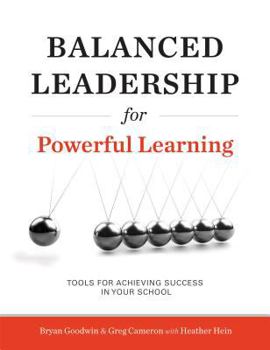Balanced Leadership for Powerful Learning
Select Format
Select Condition 
Book Overview
What makes a great school leader? Contrary to what many believe, the answer is not tied to a certain kind of personality but to specific behaviors and actions that have positive effects on student achievement--behaviors and actions that any school leader can learn and put into practice. Over the last decade, thousands of school principals have done that, by implementing "balanced leadership," an approach that recognizes the need to both maintain and challenge the status quo in order to move schools forward.
Building on the analysis that was first reported in School Leadership That Works, the authors of Balanced Leadership identify the 21 responsibilities associated with effective leadership and show how they relate to three overarching responsibilities: Establishing a clear focus--keeping the work and the conversations targeted on the issues that matter most;Managing change--understanding how to skillfully steer through the challenges associated with making improvements, both large and small; andDeveloping a purposeful community--creating a sense among all teachers and staff that they are invested in student outcomes and that they can make a difference.
For each of these areas, key points and specific practices are described in detail and illustrated with stories from school principals who have successfully learned how to become great leaders. Step-by-step tools provide clear guidance for readers who are ready to make the same kind of journey--one with the potential to transform them and the schools they serve.





